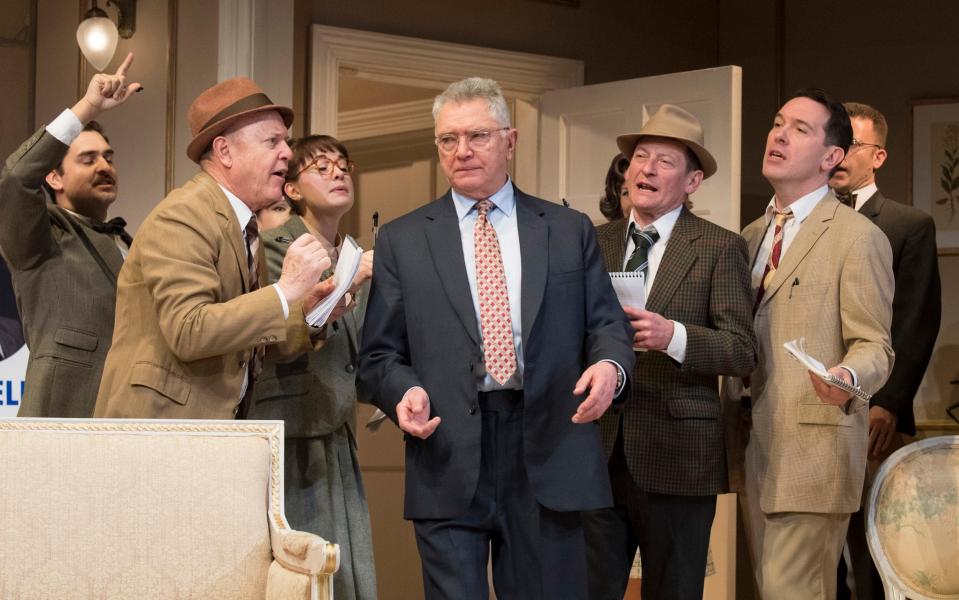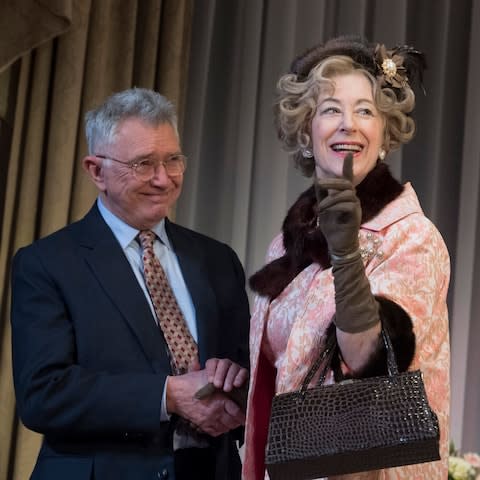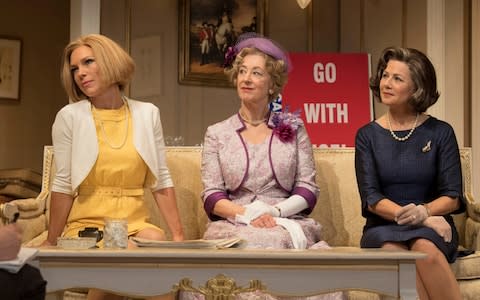Gore Vidal's political interrogation can still induce a shudder - The Best Man, Playhouse, review

Few writers in the 20th century got as close to the heart of American politics as Gore Vidal (1925-2012). He flew the flag for the public intellectual and, for all his lofty privilege, served to interrogate the operation of power.
The Best Man, a play he wrote in 1960 when in his mid-thirties, has been seen three times on Broadway, and was made into a film in 1964 starring Henry Fonda but it hasn’t been staged in the UK before.
There are two obvious reasons why that should be. It’s egg-headishly interested in how the two main US parties (which Vidal once acidly described as being two right wings of “the property party”) go about deciding their presidential candidates. And the further we get from 1960, the greater the risk of it looking like a museum piece. In the age of Trump, what value Vidal’s political analysis 12 White House incumbents ago?
Although this premiere arrives at an odd (mid-term) time in the US cycle, the surprise is just how much pertains to America today – and, indirectly, ourselves: just what does it take to get in the running for the top job?

Vidal, who was an unsuccessful Democrat Congressional candidate in New York in 1960 (slogan: “You’ll get more with Gore”), allows us to infiltrate Philadelphia hotel suites (one set, serving, with only modest adjustments of banners, to convey the hang-outs of two rival contenders) that become nests of intrigue as the crucial convention (party unspecified) approaches.
Every time anyone opens the door, there’s a comic hue and cry among the press pack. We’re treated to a spin on Julius Caesar, with the principled but privileged Secretary of State William Russell and the bullish, populist Senator Joseph Cantwell squaring up like Brutus and Mark Antony, vying not to usurp “Caesar” – the dying ex-President – but get his endorsement.
Both married men have “dirt” on the other – a one-time mental breakdown, the suggestion of a homosexual past (entailing the damning label of “degeneracy”); the question is whether they’ll stoop to that level. Gore isn’t entirely even-handed – he gives Russell some of the better barbs (“The self-made man often makes himself out of pieces of his victims,” he tells his opponent. “You are something of a Frankenstein monster, Joe”). Yet he suggests, with a light touch, a world in which no one can look themselves fully in the mirror – and where even doing the right thing is conducted with half an eye on how that may be reported and received.

Those hoping for the adrenalin rush of The West Wing, say, or House of Cards be warned: it’s a sedentary, talky evening and “Get them to gabble less, talk louder” would be the one note I’d shove under the door of the director Simon Evans. As the patrician Russell, Martin Shaw has the requisite self-possession but needs more evident zeal and loin-girded vitality (he’s too easily out-vimmed by Jeff Fahey’s puffed-up Cantwell).
What a man’s world it was (er, is?). Jack Shepherd’s frail but animated ex-President Hockstader even jokes, assuming the impunity of his era’s chauvinism, that women voters have “no more sense than a bunch of geese”. The women, subordinated, make their mark, though: Maureen Lipman as the slyly manipulative Mrs Gamadge – power-broker for the female delegates; Glynis Barber as Russell’s betrayed, estranged but tactically loyal spouse (did someone say Hillary?); and Honeysuckle Weeks as Cantwell’s consciously alluring other half (don’t mention Melania).
Producer Bill Kenwright was recently criticised for inflicting that schlock-fest The Exorcist on the West End. He has elevated the tone here. Compared with major recent political primers from over the pond like JT Rogers’ Oslo, or close to home our own James Graham’s This House, it doesn’t qualify as an urgent necessity. But though you can see the cobwebs, the chilly draught of age-old real-politik is bracing enough to induce a useful shudder.
Until May 12. Tickets: 0844 871 7631; atgtickets.com

